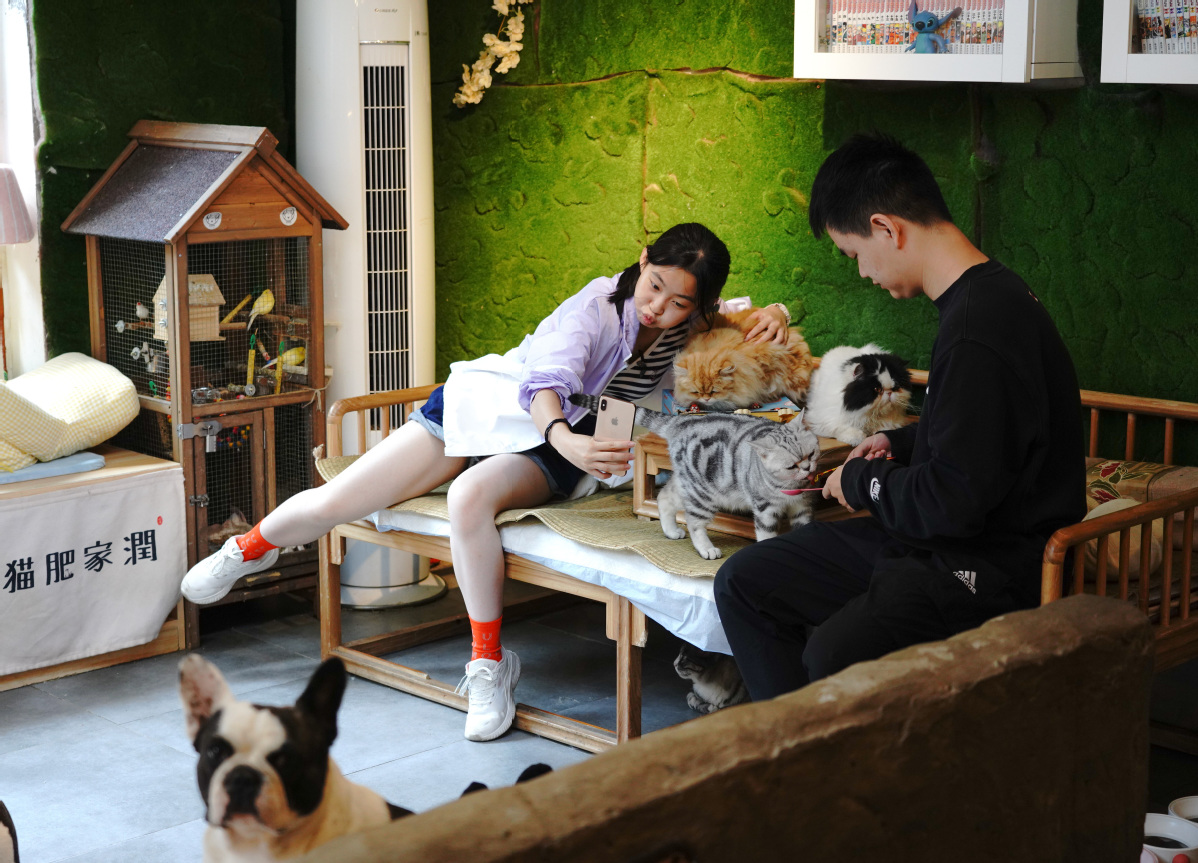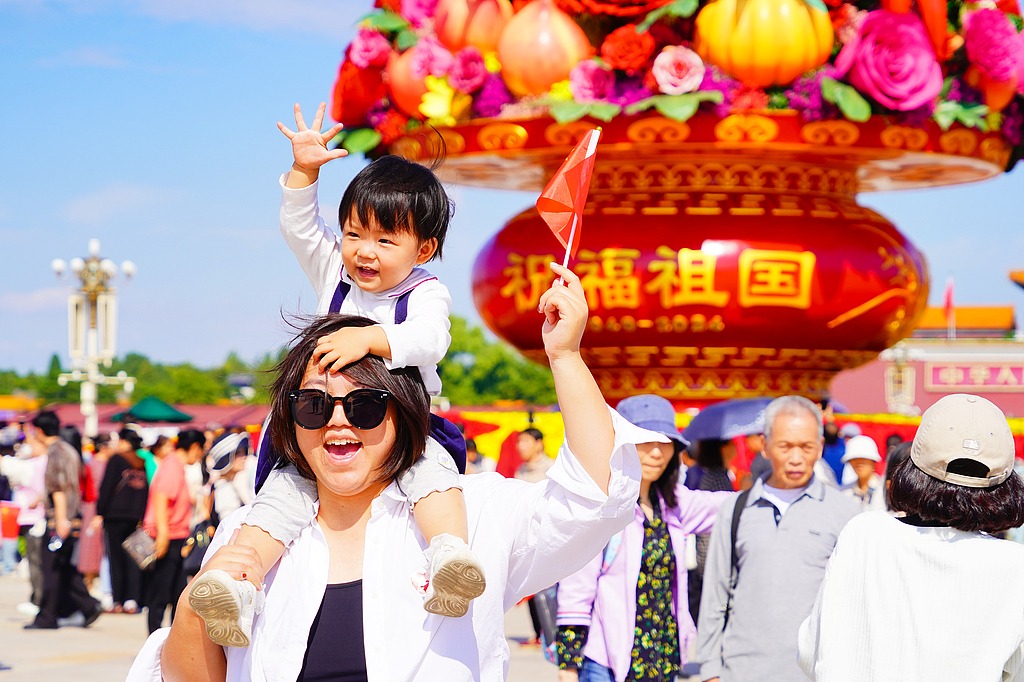Pet-friendly cafes make 'purrfect' combo


With consumption upgrades and the growth of cat and dog owners, pet cafes — a new business concept — are gaining popularity across the country.
For Yu Miao, a 30-year-old cat owner in Hangzhou, Zhejiang province, one of the criteria when she selects a coffee shop is whether it is pet-friendly.
"There are so many coffee shops in Hangzhou. As a cat owner, I sometimes take my cat out, and I would like to choose a coffee shop that allows my cat to accompany me in cafes," she said.
With the number of animal lovers like Yu growing in recent years, pet-friendly coffee shops are sprouting up like mushrooms after a spring shower.
At a pet-friendly cafe in Hangzhou's Hubin business area, a steady stream of coffee fans arrive for a cup of joe with their trusty four-legged friends in tow. The shop is divided into two sections. The outside portion is for canines and their masters while the inside area is for felines. The venue can accommodate up to 60 such furry creatures, with a wide variety of breeds popular among young brewed-beverage fans.
Duan Mu, owner of the coffee shop, said that it has been popular ever since its opening in April, especially during weekends, when single-day passenger flows can be as high as over 500.
"Due to limited living space and busy work schedules, many young people are now unable to raise pets themselves. The pets here satisfy their needs to play with them. To attract more visitors, we also introduced water pufferfish, alpacas and ducks," he said, referring to the several animals he looks after in the shop.
With the expansion of the pet ownership market, pet-friendly coffee shops in other cities are also enjoying wide popularity. "Capacity rates during normal operating days stand at around 70 to 80 percent. During weekends, sometimes visitors have to wait in line before being seated. As customers are all here to enjoy themselves with animals, they think the experience is worth the wait," said a pet-friendly coffee shop owner surnamed Li in Beijing.
In fact, the emergence of pet economy-derived businesses is not accidental. Behind the trend is a huge group of animal lovers who are willing to pay for the well-being of domesticated animals. According to a recent report by market consultancy iiMedia Research, in 2022, the market scale of China's pet economy totaled 493.6 billion yuan ($68.6 billion), with the penetration rate of families with pets rising year by year. It is expected that the market will reach 811.4 billion yuan by 2025.
China's first cat-friendly coffee shop opened in Guangzhou in 2011. As of February, there were more than 4,000 pet-friendly coffee shops in China, data from corporate data provider Qichacha showed.
Pet-friendly coffee shops can be mainly divided into two modes. One raises cats and dogs in the shop and enables consumers to play with them. These venues charge admission fees in addition to costs for beverages and snacks. Some charge by the hour, while others have no time limits. Taking Shanghai as an example, admission tickets for time-limited cat cafes range from 40 yuan to 200 yuan per hour.
The other model simply allows pets to visit and enjoy coffee with their owners. There is no admission fee levied, but customers need to order if they want to remain on the premises. Some pet-friendly coffee shops do have minimum charges.
Pets are the highlight of pet-friendly coffee shops, but they can also present difficulties. Many shop owners said that there are occasional incidents of cats biting or scratching customers. Although every cat has been fully vaccinated, there are still some customers who demand compensation, especially when children come home after being injured. Parents who are not familiar with the situation often make things more complicated. The cases also happen among dogs and other animals.
Industry experts said that uncontrollable factors associated with such animals often increase the operating costs of pet-friendly cafes, let alone various contagion prevention fees and medical costs of the pets themselves. In addition, there are also hygiene-related food and beverage hazards caused by animals.
Zhang Shule, a columnist at people.cn, said that pet-friendly coffee shops should address the above-mentioned problems in order to build customer loyalty and burnish brand images.
"Meanwhile, they should develop diversified services, such as introducing pet grooming services, to achieve long-term growth. Young people prefer to pursue personalized, unique user experiences. Pet-friendly coffee shops should think carefully about how to improve products and services to win the hearts of consumers," Zhang said.




































